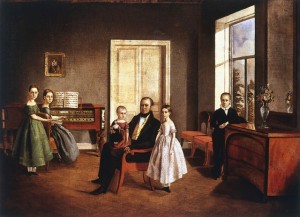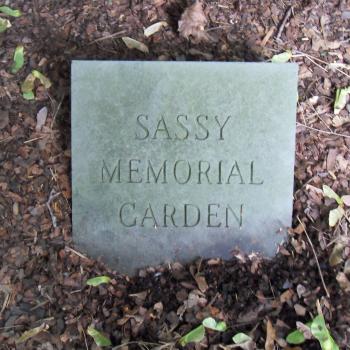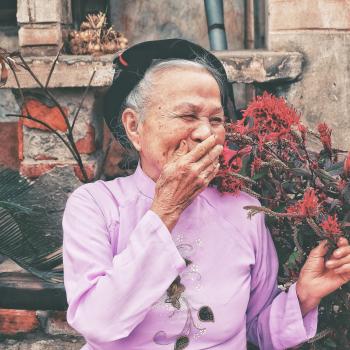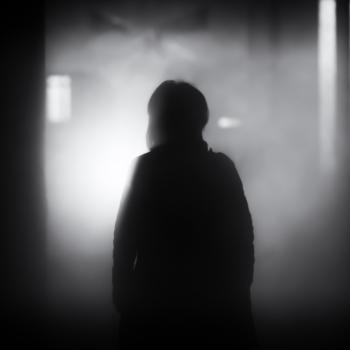 In commenting on my latest essay for “Good Letters,” a man “disabled from an odd condition” confided that, when his health crashed, he found himself abandoned by those he depended upon: “My family avoided me thinking that I represented their destiny.” Years later “they still do,” he added.
In commenting on my latest essay for “Good Letters,” a man “disabled from an odd condition” confided that, when his health crashed, he found himself abandoned by those he depended upon: “My family avoided me thinking that I represented their destiny.” Years later “they still do,” he added.
Not everyone who lives with advancing death or a maladroit disability must live without his family’s succor and society. But I know exactly what this man is talking about, because my family too has avoided me since I was diagnosed with terminal cancer nearly seven years ago.
For five years my younger sister said nothing at all to me about the disease. My other sister will give a “like” to cancer updates on Facebook, but she never gets in touch with me. She doesn’t even leave a short encouraging comment. She clicks the “like” toggle and moves on. And, oh, oh, let me tell you about—but please stop me from tabulating grievances. Already I’m starting to remind myself of John McEnroe after a linesman’s bad call.
I also refuse to quote the first sentence of Anna Karenina, which is usually trotted out in these circumstances, principally because I think it is false. The truth is that unhappy families are more alike than happy families. Unhappiness takes the universal forms of bitterness, resentment, and the symptom to which Kafka dedicated an entire novel—psychological arrest at an early stage, preventing emotional growth and development.
One of the best accounts of family dysfunction ever written is Joshua Henkin’s novel The World Without You. (My review is here.) Noelle, the prettiest of three daughters, was promiscuous in high school as a rebellion from the family strictures.
But now she has turned her life around. She is a baalat teshuvah (she has turned to Orthodox Judaism), made aliyah to Israel, married a religious Jew, gave birth to four sons whom she is raising as religious Jews, and enthusiastically supports George W. Bush—casting an absentee ballot for him from 6,000 miles away, “and not just once, but twice!”
For the rest of her family, though, Noelle has merely brought her rebellious promiscuity up to date as rebellious religiosity and deplorable politics. In their eyes she has not grown and developed as a woman, but has settled down and spread out in her established family role: her adult choices are flagrant rejections of their public self-image. (The mother has written twenty-four anti-war op-ed columns and emphatically spurns President Bush’s invitation to the White House after her son is killed in Iraq.)
Like Josef K., Noelle is arrested without having done anything truly wrong. Her family of secular Jews angrily denies that they share her religion, sneering that it’s “delusional”; they condemn her home country, the Jewish state, dismissing it as “warmongering”; they blame President Bush and “all fifty million people who voted for him,” including her, for the death of her younger brother.
Noelle may be an extreme case—I too, as the only conservative, Orthodox Jew, and Zionist in my family, receive a cold shoulder while the anger is stored away in the freezer—but in every unhappy family the conditions are duplicated. Members of the family are arrested in roles that date from childhood. To escape these roles is to do wrong in the eyes of the family, even if it is not truly wrong. Growth and development are intolerable pressures on family ties.
Perhaps the most intense pressure is applied by disease. It splinters the family roles in ways that no one is prepared for. The dying find they have suddenly aged by a generation or more. Their brothers and sisters, without warning, are much younger than they.
And the relationship between the two generations, the sick and the healthy, fall prey to the social conventions described by Miss Meacham in Terence Rattigan’s Separate Tables: “Why should we expect the young to show us any consideration? Seeing us can only remind them of death. And old people’s diseases. I’m not surprised to see them stay away.”
It is not, then, that the healthy members of a family stay away from the dying, because the dying “represent their destiny.” We remind them of death, which is an unwelcome rearrangement of the ties that bind.
Families are sanctuaries of unvarying habit and roles in which we are all forever arrested, exempting us from reflection and restoring us to speech patterns and behavioral routines that we got down pat before we ever had to think about them.
All unhappy families are alike; every happy family is happy in its own way. Perhaps Americans have simply reversed the progress of Russian life, but my guess is that disease and dying unexpectedly fail to crack apart happy families for the same reason these families are happy in the first place.
As I have argued, denial, self-pity, panic, and despair are the natural reactions to a diagnosis of terminal cancer. They are also, coincidentally enough, the natural reactions to any crisis in an unhappy family.
But the prospect of dying, and dying soon, can be liberating. Only what gives meaning to life, and imbues it with delight, no matter how briefly, is what demands attention. The mystery of life, Walker Percy wrote in Lancelot, is the here and now:
As you begin to get older you begin to realize the trick time is playing, and that unless you do something about it, the passage of time is nothing but the encroachment of the horrible banality of the past on the pure future.
This is an exact description of life in unhappy families, where the past devours the future. Happy families live in the here and now, and so might the dying, if they can liberate themselves from the banality of the past. Should they belong to a happy family, their task is already half-performed. If not, they may have to shake themselves free of their family if they hope to live out their final days in any semblance of happiness.
D. G. Myers is a critic and literary historian who taught for nearly a quarter of a century at Texas A&M and Ohio State universities. He is the author of The Elephants Teach and ex-fiction critic for Commentary. He has also written for the New York Times Book Review, the Weekly Standard, Philosophy and Literature, the Sewanee Review, First Things, Jewish Ideas Daily, the Daily Beast, the Barnes & Noble Review, the Journal of the History of Ideas, American Literary History, and other journals.











